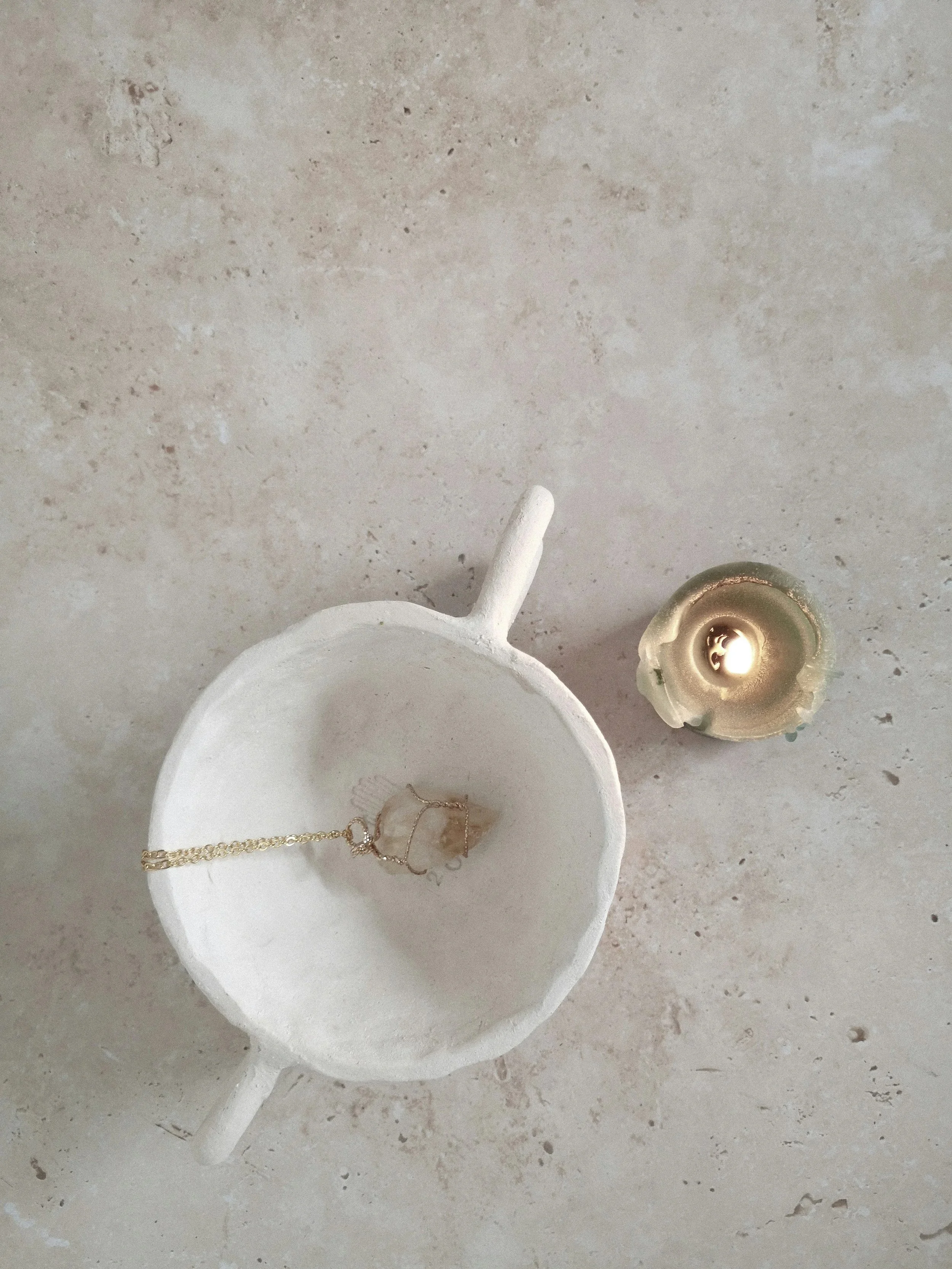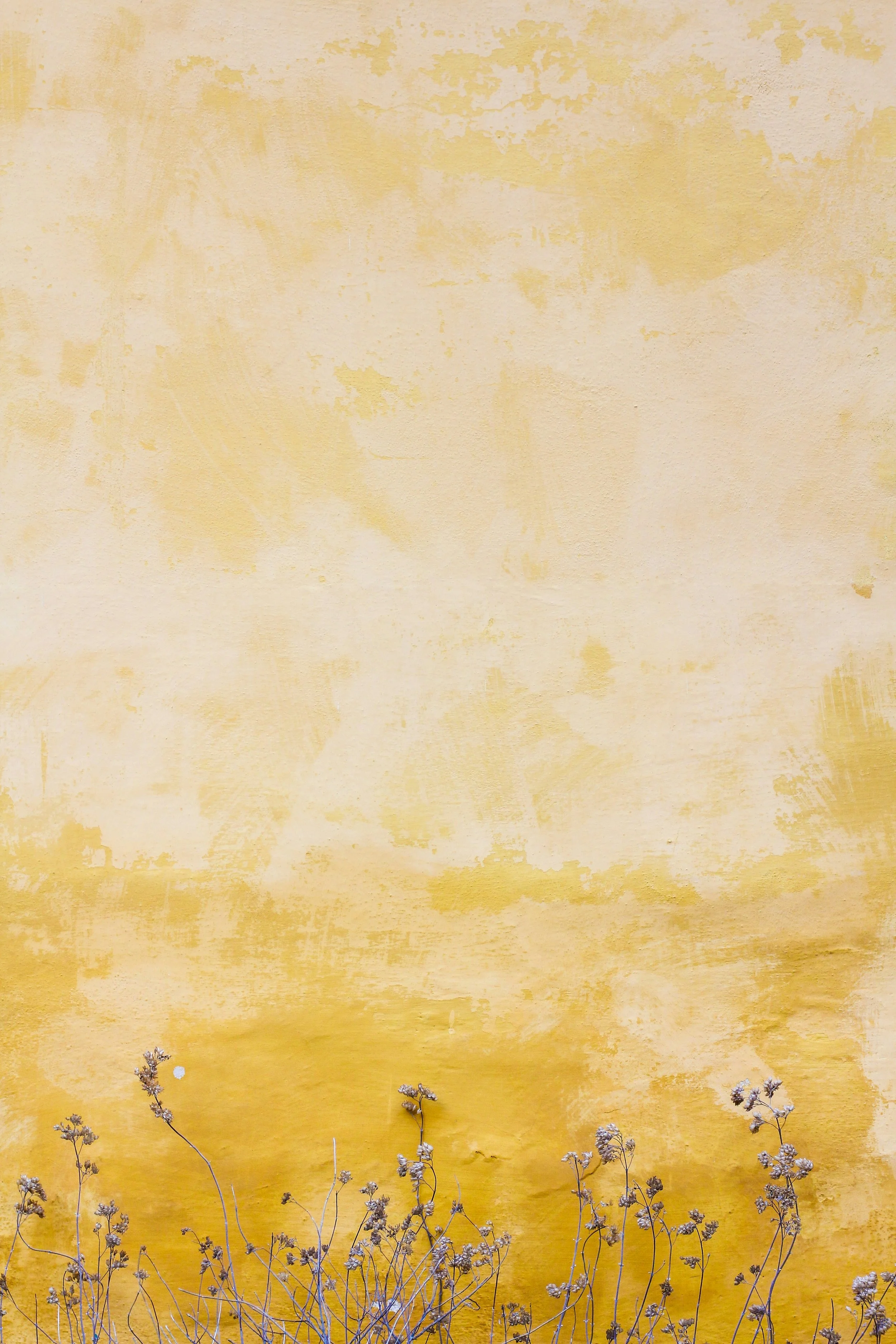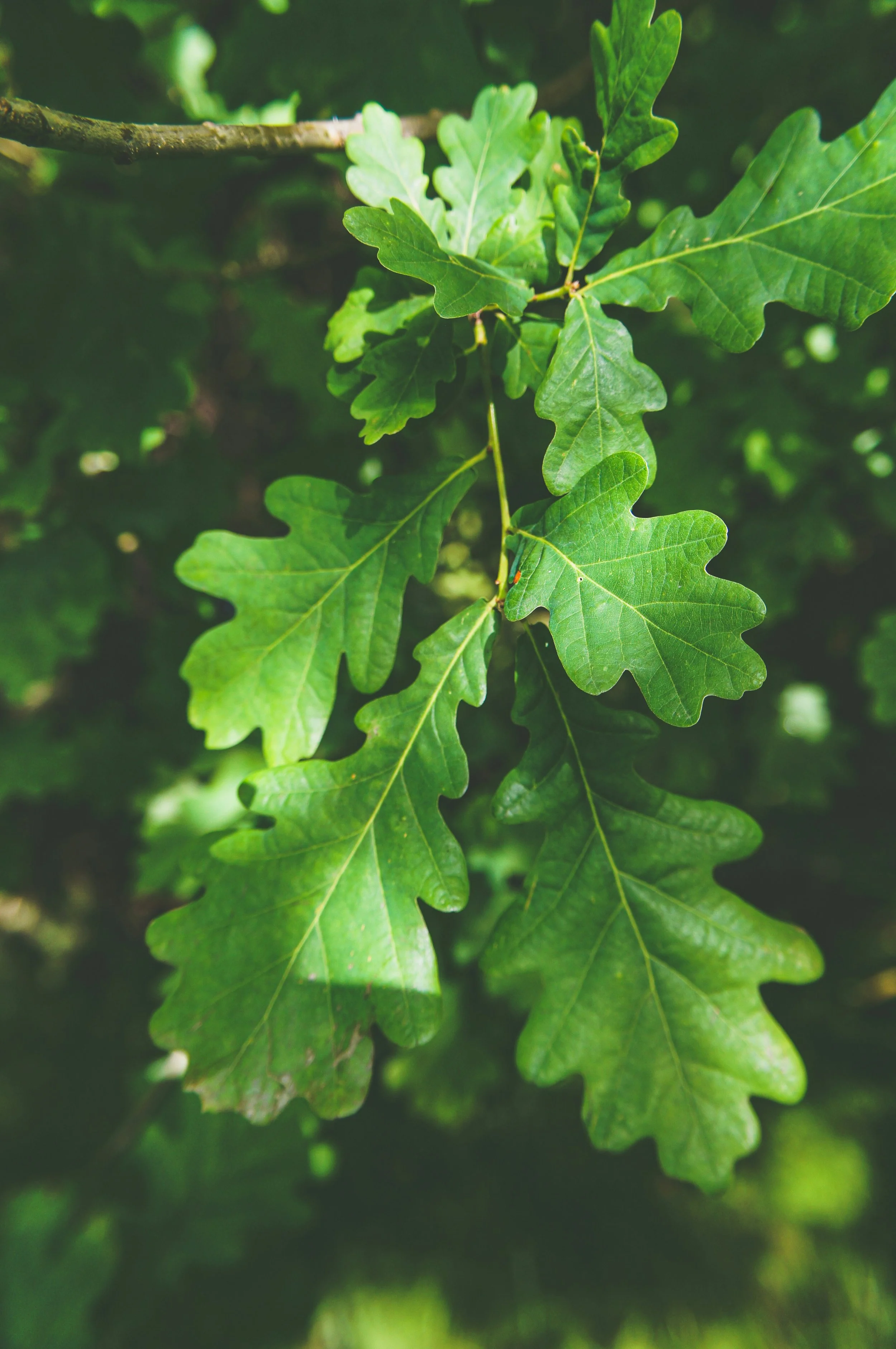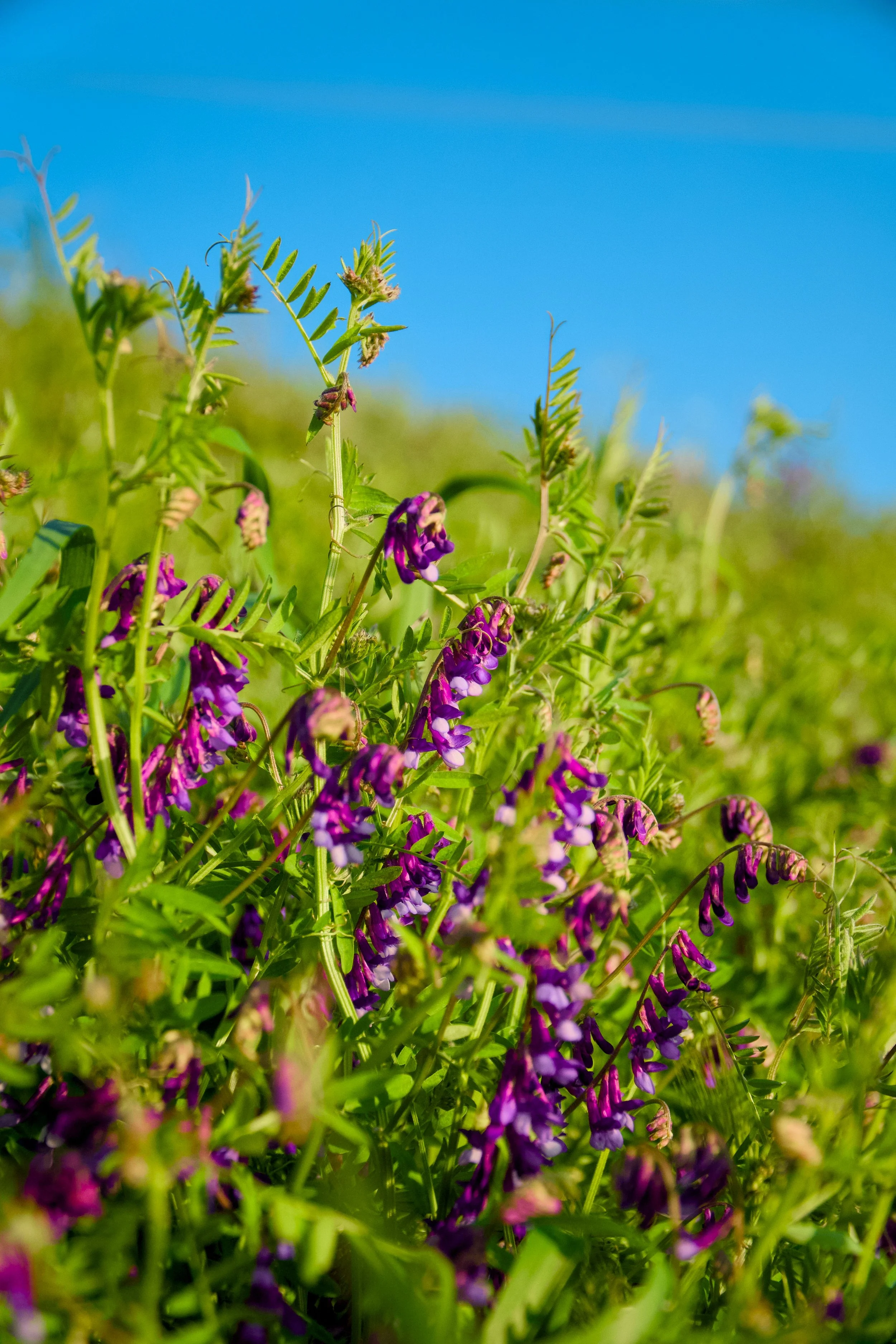One Move
A 21-Day Gentle Somatics Exploration
January 11 - February 1, 2026
Accessible somatics and teachings for disabled and chronically ill people, and anyone looking for a gentle, low-to-no exertion movement and rest practice.
Practice one new somatic exercise each day for 21-days.
Learn how to customize a practice that meets the real needs of your body while unwinding patterns of self-rejection and disconnection in your relationship with your body.
This is a space where you can permit a softening, slowing down and settling in, letting the body explore restful positions and gentle movements within the parameters that are accessible to you.
We practice building attunement to what your body feels, needs, knows and wants, prioritizing always a commitment to protecting your body and accepting its abilities and limitations in a given moment.
Abled people also welcomed.

Develop a vocabulary of very simple movements, resting postures and practices that can improve physical and emotional calm and connection when practiced even 2-10 minutes a day.
In this program we are exploring the possibilities of gentle somatic practice that is safe and accessible for as many people as possible with PEM, MECFS, Long Covid, MS, Fibromyalgia, and other disabling illnesses, a practice that centers our needs.
My hope is that by offering modifications or alternate resting exercises with each day’s practice, this program can be accessible to as many people as possible.
Please note: While our aim is to make this as accessible as possible to as many people as possible, this cohort of the program will not be safe for people with severe PEM or people who are primarily bedbound. We hope to do a dedicated run of this program for bedbound people in the future.
What is Somatics?
I use the word somatics to mean a practice of exploring and paying attention to your experience from within.
It’s a way of tending to your real needs in the moment with care, learning as you go what helps you get more settled, softer, centered, regulated and connected.
A method for cultivating loving attention, attunement and acceptance of your whole self, of tuning in to your feelings and felt sense and experience of life. A way of listening to your body with kindness and curiosity which expands your ability to notice and be present with whatever is going on with you in the given moment.
An invitation to soften into your current experience as an embodied creature while removing any agenda that you be anything different than who you are in this moment.
A practice of turning toward ease, even if in the tiniest increments, opening up a space where you remind yourself that whatever your limitations, whatever you’re feeling and experiencing is allowed. Of developing a quality of generosity and kindness towards yourself — body, mind and soul. Practicing radical self-acceptance and permission to be the whole of what you are, what you feel, what you sense, all of you.
Somatic practice allows you to become more present to and accepting of your wholeness, including all the aspects of you that society judges or rejects, a practice of honoring that you are always all of you, every aspect of your character and experience an integral part of the whole and deserving of acceptance and inclusion.
Why this approach is needed:
The wellness, movement and fitness cultures in this society endanger, stigmatize and exclude disabled people and multiply-marginalized people as the norm.
Even among groups centered in justice and liberation, there is little commitment to accessibility and little will to confront the ableism within their own cultures (and psyches).
Ableism—the belief that disabled people are inferior to able-bodied people, the unexamined conviction that the disabled and chronically ill are unreliable narrators, lazy, fakers and/or burdens on society (useless eaters, as the nazis called us)—is a bigotry so normalized that even those who claim to be against all bigotry remain invested in it, attached to their culturally-conditioned ideas that disabled people don’t have value and “naturally” exist at the social margins, beyond the horizon of their concern and care.
This has all become especially clear in the era of Covid. As more overt forms of bigotry, exclusion and scapegoating of the disabled have become normalized by our governments and primary institutions, it’s not just the self-identified right wing folks who’ve gone along with it. The underlying, unexamined, pervasive ableism of liberals and leftists has also come out of hiding.
These violent attitudes also pervade wellness, exercise and movement culture. Wellness culture, in fact, has had a longstanding tendency to align with fascist movements, and has historically popularized and escalated eugenicist norms during times of rising fascism.
Because of the unwillingness even among progressive and liberation-oriented movement schools and practitioners to commit to accessibility and a lack of will to confront the ableism within their own cultures, these spaces are generally a danger to those living with disabilities, chronic illness and compromised immune systems.
The needs of those excluded and endangered by the norms in movement practice spaces matter. Your very real needs are sacred. You deserve to have access to spaces and cultures that don’t ignore and perpetuate ableism, nor carelessly endanger you and consider your needs irrelevant, unimportant or burdensome.
In this space we aim to create as much accessibility, inclusion and safety as possible for those left behind by the pervasive ableism normalized in our society.

What does it mean to take care of your body and tend to your nervous system when exercise and practices that rely on exertion are unsafe for you?
As a person who cannot tolerate exertion without becoming very ill—because I have PEM—I’ve had to find a way of connecting with my body and paying attention to it that requires little-to-no exertion.
I had to learn how to recognize the ways I was chronically aggressive with my body and in my expectations for myself. I had to grieve my loss of capacity to meet the expectations of an ableist culture in order to find my way to acceptance of my limits, and then eventually, to respect and appreciation for them.
I didn’t expect the process to heal my relationship with my body, but as I’ve dismantled internalized ableism and unwound all those stories about what my body should be capable of I found myself settling into the warmest, kindest, most expansive relationship with my body I’ve ever experienced.
None of this was because I broke through my limits. Or met some arbitrary fitness goals. Instead, it happened because I let go of the ambition to be other than I was, let go of my attachment to the ableist standards of the overculture and the judgment of my limits and illness I had internalized.
Or, to be more accurate, I became committed to a practice of unwinding the influence of the ableism of my culture on my relationship with my body.
Because it is a practice. Ableism is a deeply rooted, primarily subconscious set of beliefs, bigotry, expectations, prejudices and biases, and it is absolutely ubiquitous in the dominant culture, so unlearning it is a daily practice of noticing, tending to and uprooting that whole way of thinking and relating (to yourself and others).
This is the experience I want to make available for others, especially other disabled and chronically ill people.
I want you to have an opportunity to immerse in a very gentle practice for a few weeks while establishing a consistent habit of 2-5 minutes a day, learning and practicing new ways of tending to yourself, in the embrace of a group of people interested in repairing our relationships with our bodies and grounded in a commitment to disability justice.
Hello, I’m Lauren, the founder of Horsetail & Oak Soma School and I will be your guide and teacher in this experience.
I am a writer, teacher, liberation midwife and mentor, somatic coach and curricula designer. A cisgendered, queer and neuroqueer, disabled and chronically ill outlier, who came to recognize my neurodivergence late in life (in the last few years). My pronouns are she/her.
I believe that the very foundation and essence of the dominant culture is rooted in violence and exploitative relations, and my sense of meaning is rooted in the desire to break generational cycles that sustain the dominion of these pathological systems, and to help others do the same, so we have a fighting chance of creating emergent cultures rooted in well-relations and getting off the inconceivably catastrophic, dystopian trajectory we’re on.
In my work I focus on supporting and guiding people through practices of unlearning and repatterning — unwinding those aspects of our core conditioning that lock us into patterns of suffering and establishing new awareness and habits.
I teach practices that help people root into a deepening sense of connection to the body’s subtle and ancestral insight, knowledge and perception and train people in the practices of developing somatic awareness and attunement.
It's my mission to create experiences that speak to your heart and answer your true needs, experiences that awaken deep insight, generate connection with your body’s rhythms and sense, and support you in ending generational cycles of suffering.
I taught yoga and experimented with my own intuitive somatic practice for 15 years, until 2010 when I became too ill to work more than a few hours a week.
For the first 15 years of chronic illness, before I was too ill to work regularly, I was focused on chasing a cure. I wasn’t aware of my internalized ableism or of how it fundamentally distorted my relationship with my body.
I had to learn the territory of disability and PEM, slowly and painfully, over years, until I understood how dangerous it was to exert myself past a very limited envelope of tolerance. The somatics exploration I had been practicing on my own in the before times became my greatest teacher. This is the kind of practice — customized to your needs and dis/abilities — that One Move is designed to help you build.

Testimony
Lauren is an incredibly smart, warm, and caring somatics teacher who brings insight and perspective to every session. She helps you see new ways of understanding your body and your movement, and guides you gently to move forward in your own practice at your own pace.
What makes her special is her deep commitment to disability justice—she truly meets people where they are and creates an accessible, welcoming space for all bodies. I’ve learned simple, restorative exercises that helped me feel calmer, more connected, and kinder toward myself, even with chronic illness.
If you’re looking for a thoughtful, supportive guide to explore gentle somatics while honoring your body’s limits, Lauren is the teacher you want to work with.
— Howard Abram, San Diego, CA, USA
“Lauren was my first yoga teacher. She moved to the other coast about 5 years after I began taking her classes, and I’ve never found a teacher since whose classes are so soul-soothing, restful and illuminating, though I’ve had many good teachers.
There is a poetry in her guidance, the way she invites you to bring curious attention towards what you’re feeling and noticing in your body’s experience. I miss her classes and her wisdom.
— C. Summers, Arlington, MA, US
“As someone very new to somatic work, Lauren made me feel like I belonged and that these practices were for me, no matter what pace I needed to go or what accommodations I needed to make for myself. I’ve experienced her facilitation style to be attuned, responsive and so easy to follow. She knows how to create a safe haven of a space, even through a laptop screen. By the end of every session it always feels like a huge weight has been lifted.
I’m always looking forward to the next session.
I highly recommend any of Lauren’s courses and hope you find them to be a haven as well.”
— Annie Liao, Los Angeles, CA, US
“Working with Lauren has been one of the most powerful and impactful experiences in my adult life. Her work is eloquent, powerful, deep and vast. I have been awakened, enlivened and healed by my experience with her. We’ve worked deeply with my ancestral lineage and as a result my patterns have changed (and are continuing to) — contractions releasing, insights and a-ha experiences abound.
Lauren’s insight, experience, and intuition have helped me to address past and present trauma — our work has served me in deep and profound ways, as it has those I am connected to and serve in turn.
— Lisa Evert, Cleveland, OH, US
Lauren has a genius for guiding your awareness in a way that helps you to ease safely into more presence in your body. Her classes helped me grow better at discerning, listening to and trusting my body’s intelligence and its capacity for healing, without shaming or pressuring myself about what is beyond my range or cannot be cured.
— Ash McLeod, Portland, OR, US
“I feel from your writing a gravitas about our world, a sense of stewardship, a seriousness about wanting things to be better but also the necessary ability to look at things as they are. To study or interact with you is a rewarding process of asking myself to see and think with clarity, and to mobilise the compassion of my heart. If you are in the water, I feel you are standing deep in it, immersed in mangrove mud to the waist, body and arms and face and hair somehow a lot out of the water, and it's sparkling from the sun, and your hair is long, and you reach higher than makes sense, and you can see very far. So to be around your work and you feels like you move with that current without falling over.
I read your writing because that feeling of being around someone rooted deep enough to feel it and sway in the water but still stand, gives me more of that feeling in my body.
— Kiran Alphonso, Melbourne, AU
Lauren sees wide and deep. She is able to name underlying cultural dynamics with stunning clarity, recognizing how western culture and mob-think seduces people into compliance with inhumane social norms, and showing us how to free ourselves from these patterns.
— Theo Barry, Cambridge, MA
What’s Included
Please note that in totality this is what is included in the COMMUNITY (Live) program.
The Independent study includes the intro lesson & practice, the 21 pre-recorded mini-lessons, the optional bonus lessons & reading, but not the live events or the Signal group.
-
For our opening night, we will come together on zoom to discuss what you can expect and why giving 2-5 minutes a day for the next 21 days to this practice can create a meaningful and qualitative shift in your life.
We’ll discuss the core principles of this approach and cover anything you need to know to modify practices so they are accessible to you and so you can best keep yourself safe.
We’ll meet each other, we’ll shape the circle of kin in shared practice, and I’ll help guide you in clarifying your intention for the next few weeks. We’ll do a brief somatics practice of about 10 minutes. We’ll lay the foundation and inspire you for the journey.Call will be 60-90 minutes. This event will be recorded.
-
A few days before we gather for our opening circle, you will receive a recording of an introductory lesson, laying all the groundwork and teaching you some resting postures and practices that you can always replace a given day’s practice with if that day’s practice is not accessible enough or a good fit for you.
You are always invited and welcomed to modify the practice so it is safe and accessible and meets your unique needs, but I know it can be hard to know what practices are truly going to be safe for you. For that reason I want you to have a core set of resting practices so you will have options, so you can respond to both your ongoing limitations and those that are arising on a given day with care and kindness.
I will familiarize you with a set of such practices and supported postures in this intro lesson by guiding you through a gentle practice. You can always use it as a longer practice if you want to keep going after completing your daily practice, as well.
-
Each day you will have access to a new practice between 2-5 minutes long. Every practice will come with 1 or 2 suggestions for modifications or alternatives for different issues and levels of energy capacity. There will always be an option to do one of the active resting postures or practices taught in the intro materials, as well.
-
Some days when you receive your daily lesson you will also receive an optional lesson or an excerpt from some of the books and writings that have inspired me.
-
Near the middle of the 21 days I will hold office hours so you can come with any questions that have arisen as you’ve engaged with these practices. This event will not be recorded, to preserve the confidentiality of participants.
-
For the live program, a space to connect with each other, share your experiences, ask questions of each other, stay connected, and have a chance to find others to create a practice group with for sustaining the practice after the program ends.
-
We’ll get together to celebrate attending to our relationships with our bodies with such care and committing to this practice together. We will share wins, insights, struggles and shifts. And we’ll talk about ways to support yourself in sustaining this practice moving forward.
This event will be recorded.
We have three enrollment options
-

Independent Study
This option includes the pre-recorded intro lesson, the 21-days of prerecorded lessons and the optional reading. It does not include the 3 live sessions.
$49
-

Community Program
This option includes all the content plus three live sessions: the Intro Evening, the Office Hours session and the Closing Celebration. Plus the Signal group for connecting with other participants in the live program.
$99
-

Community Program + Coaching Package
This option includes all the content and live sessions, plus the Signal group, plus a coaching package including 1 90 minute 1:1 session.
$333
FAQs
-
MECFS, Long Covid and PEM are my primary issue as well. I have mild/moderate ME and moderate PEM, and I also meet the diagnostic criteria for Fibromyalgia, so that is the kind of accomodation I know best, from my own experience.
I am not, however, professionally trained in the specifics of how to make a movement practice safe for people with severe Long Covid, MECFS, PEM or Fibromyalgia. Since what I teach here is born of my decades of experience with ME, I know how to create a safe space better than those who do not understand the realities of this disease from the inside out. But if you have more severe Fibromyalgia, ME or PEM, only you can be the judge of whether you’ll be able to modify these practices to honor your limits.
If having an option every day to avoid any standing poses or movements makes this safe enough for you, I encourage you to join us.
It’s essential that you take responsibility for not doing exercises that could endanger you, but there are ways to do that in this program as long as you don’t push yourself beyond your known and sensed limits.
-
There will be a seated or lying down option for each of the 21 daily practices. If having an option every day to avoid any standing poses or movements makes this safe enough for you, I encourage you to join us.
I have moderate POTS and have built my practice around that reality. It’s essential that you take responsibility for not doing exercises that could endanger you, but there are ways to do that in this program as long as you don’t push yourself beyond your known and sensed limits.
Since I don’t have severe POTS, I’m not equipped to be the best judge of what’s safe for those who do, but if you feel you can approach this practice with gentleness toward yourself and a respect for what you need, this should be a healing and safe program for you.
-
I am not trained in the specifics of how to make a movement practice safe for hypermobile folks.
I deal with hypermobility myself though, so my own practice has evolved to keep myself safe as much as I can. Because my hypermobility is not extreme, I cannot promise that this program will be safe for you.
If you feel you have a good sense of how to modify somatic or movement practices for yourself, you should find it accessible to do so in this program, as I will always offer a more restful or gentle option for the daily practice. But if you have any concerns, please err on the side of caution, whether you join the program or not.
-
That depends so much on the nature of your health issues and your current capacity to recognize and respect your body’s limits.
Please feel free to reach out with your questions, and we’ll help you determine whether this program is safe and doable for you.
-
I am not trained in the specifics of how to make a movement practice safe for people with dissociative trauma and patterning, but I deal with dissociative trauma myself.
My own practice has evolved to keep myself safe as much as I can, and to learn to work a very gentle edge in bringing attention back into my body: sensations, feelings and all that we experience when thawing what we’ve numbed from or dissociated. I practice gentle somatics to create a little more space to explore my body’s present experience, without overwhelming my nervous system, my bodymind as a whole, and without triggering re-traumatization.
If you feel that it’s possible for you to gently bring awareness and feeling into your body’s current experience and that you have a little room to work with, I think you will find you can benefit from this program. If you’re not sure, I would err on the side of caution and assume this program may not be safe enough for you.
If you have specific questions you want to ask me to help you make this determination, please reach out.
-
You will have access to the course materials until December 31, 2026.
Our aim is to make this program as accessible as possible to as many people as possible, but this cohort of the program will not be safe for people with severe PEM or people who are primarily bedbound.
As I don’t yet feel qualified to safely guide those experiencing the most severe forms of illness and PEM, I regret that I am not able to offer a more fully inclusive program at this time. In the future, I hope to be a part of helping meet the need for more spaces for the most ill.
Please reach out if you’re not sure this experience will be safe and accessible for you and have questions. We can help you determine whether it’s a fit for you.

